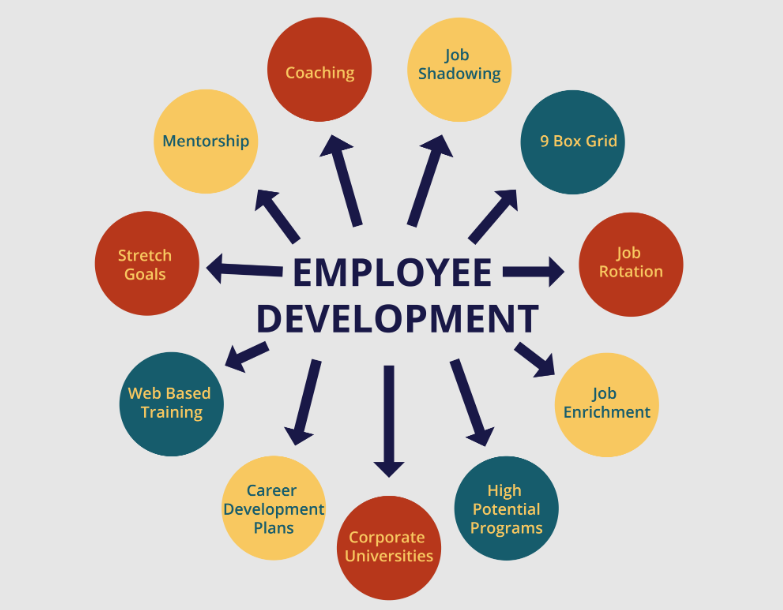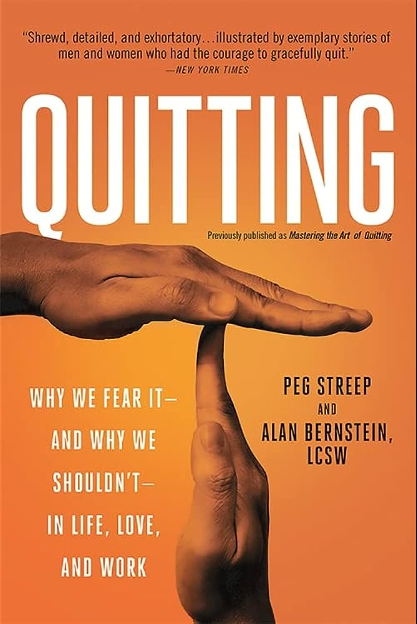Are you in a situation where you’re just going through the motions at work, without feeling fully engaged or motivated? There is a term for it, “Coasting At Work.” It’s when you’re doing the bare minimum like completing your basic tasks without that spark of motivation to excel or contribute more to your job. Coasting at work can lead to reduced productivity and a lack of enthusiasm for your work.
When you find yourself coasting, it’s essential to take a step back and reassess both your life and career goals and aspirations. Ask yourself this, “Am I truly satisfied with where I am?” If your answer is ‘no’, then it might be time to explore new challenges and opportunities that will reignite your passion for your work.
Overcoming Career Obstacles

“Coasting at work” can be caused by various factors, and it’s essential to identify them to address the issue effectively. Some common causes for coasting at work include:
Lack of Challenges: When employees find their job tasks repetitive and devoid of challenges, they may lose interest and motivation to excel.
Disengagement: Feeling disconnected from the company’s vision or values can lead to a lack of enthusiasm for the work.
Job Dissatisfaction: If employees are unhappy with their roles or feel undervalued, they may become disengaged and coast through their responsibilities.
Burnout: Experiencing high levels of stress and burnout can result in reduced energy and dedication to work tasks.
Fear of Failure: Some employees may fear taking risks or stepping outside their comfort zones, leading to a stagnant approach to work.
Lack of Recognition: Feeling unappreciated or not receiving adequate recognition for efforts can demotivate employees.
Limited Growth Opportunities: A lack of opportunities for skill development and career advancement can lead to a sense of stagnation.
Personal Issues: External factors, such as personal challenges or health issues, can impact job performance and engagement.
Organizational Culture: A toxic or unsupportive work environment may hinder employees from giving their best.
Lack of Work-Life Balance: An imbalance between work and personal life can drain employees’ energy and enthusiasm. Read our post 8 Ways Of Achieving Work Life Balance to discover the necessary steps that need to be taken to achieve a work life balance
Recognizing these causes can help both individuals and organizations implement strategies to re-engage employees and foster a more fulfilling work environment.
She Said

In the words of Marillyn A. Hewson, the Chief Executive Officer (CEO) of Lockheed Martin Corporation, a prominent global defense contractor, let’s explore her perspective on the concept of “coasting at work.”
- “Coasting at work might seem safe, but it won’t lead to fulfillment. Take bold steps, believe in yourself, and success will follow.”
Health and Mindfulness
Life is a big ball of unpredictable circumstances that can sometimes cause us to disengage from the things we once enjoyed or at least thought we enjoyed. And for the most part, people who are fed up don’t always turn to quitting their jobs. Sometimes, it’s easier to disengage and keep getting paid than to hand in your resignation letter. Here are some helpful suggestions for both employees and employers on how to manage or prevent coasting at work:

For Employees:
Set Meaningful Goals: Define clear and achievable career goals, both short-term and long-term, to stay motivated and focused on personal growth.
Seek New Challenges: Take on additional responsibilities or projects that challenge your skills and knowledge, promoting continuous learning and growth.
Ask for Feedback: Regularly seek feedback from supervisors and peers to identify areas for improvement and work on enhancing performance.
Take Initiative: Be proactive in suggesting new ideas and initiatives that can contribute to the company’s success and demonstrate your commitment.
Develop a Growth Mindset: Embrace challenges and view setbacks as opportunities for learning and improvement, fostering resilience and a positive attitude.
Seek Support: Reach out to mentors or colleagues for guidance and support in navigating career challenges and seeking growth opportunities.
needed.

For Employers:
Foster a Positive Work Culture: Cultivate a supportive and inclusive work environment that encourages employees to engage and excel.
Provide Professional Development: Offer training and development programs to help employees acquire new skills and advance in their careers.
Recognize and Reward Performance: Acknowledge and appreciate employees’ efforts and accomplishments to boost morale and motivation.
Create Opportunities for Advancement: Establish clear career paths and growth opportunities within the organization to motivate employees to strive for excellence.
Encourage Innovation: Promote a culture of innovation where employees feel encouraged to suggest new ideas and take calculated risks.
Conduct Regular Performance Reviews: Conduct regular performance evaluations and offer constructive feedback to help employees improve and grow.
Offer Work-Life Balance: Encourage a healthy work-life balance to prevent burnout and support overall well-being.
Communicate Openly: Maintain open lines of communication with employees, addressing concerns and providing support when needed.
Chris Shenton MSc in his blog post “How to manage your coasting employees” extensively discusses and provides practical guides on how Employers can identify and manage coasting employees before it begins to affect the company’s productivity.
Be Inspired
Stories of women accomplishing great things

Comedy Queens: Unveiling the talented and fearless female stars of LOL: last one laughing Naija
On the 23rd of July, 2023 The Guardian Nigeria announced that “Nigerian comedians; Kiekie, Taaooma, and DatWarriGirl who are part of an all-star lineup made up of Nigeria’s top-tier comedy acts in Prime Video’s first unscripted African Original, Last One Laughing Naija”.
Mid-Week Tips
These are some examples of practices and activities that employers can introduce into the workplace to create an environment that promotes employee engagement, passion, and commitment, thereby, leading to enhanced overall productivity and job satisfaction.
Skill Development Workshops: Organize workshops or training sessions that allow employees to enhance their skills and stay updated with the latest industry trends.
Job Rotation: Offer job rotation opportunities that allow employees to explore different roles within the organization, fostering continuous learning and growth.
Gamification: Implement gamification elements in the workplace, such as setting up friendly competitions or challenges to motivate employees and make work more enjoyable.
Mentoring Programs: Establish mentoring programs where experienced employees can guide and support less experienced colleagues in their career development.
Wellness Programs: Implement wellness programs that focus on physical and mental well-being, promoting a healthy and motivated workforce.
Recognition and Rewards: Recognize and reward employees for their hard work and exceptional contributions, creating a culture of appreciation.
Personal Development Days: Allow employees to take personal development days to pursue hobbies, interests, or personal projects that can recharge their creativity and passion.
Team-Building Activities: Organize team-building activities and events to strengthen collaboration and camaraderie among employees.
Cross-Departmental Collaboration: Encourage collaboration between different departments to foster a sense of unity and shared purpose.
Highly Recommend

Mastering the Art of Quitting: Why It Matters in Life, Love, and Work by Peg Streep and Alan B. Bernstein.
In the book, Streep and Bernstein challenge the conventional belief that quitting is a negative trait or signifies weakness. Instead, they argue that knowing when to quit can be empowering and liberating. The book presents research, insights, and real-life stories to demonstrate how strategic quitting can lead to positive outcomes in different areas of life, including relationships, careers, and personal goals. They provide practical guidance on how to recognize when it’s time to quit, how to do it gracefully, and how to turn quitting into a strategic decision for personal growth and self-improvement.
